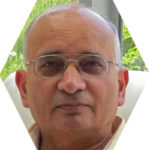Americans seem to be afflicted by a curious historical amnesia. The facts are indisputable. The number of non-nuclear countries to have been attacked and invaded by the United States since 1945 is legion. Conversely, not one country with the bomb has been attacked. This equation, more than any other, drives the decision-making calculus of countries fearful of U.S. aggression. Kim may be paranoid about U.S. military strikes. The cause of his paranoia lies not in any internal psychoses, but in the history of belligerent U.S. militarism.
CANBERRA – Last year’s Singapore summit between U.S. President Donald Trump and North Korean leader Kim Jong Un was a global ratings success as the first-ever meeting between leaders of the two countries, but the outcome was underwhelming. The world awaits the second summit, which will take place Feb. 27 and 28 in Hanoi, with similar breathlessness.
Is there cause for cautious optimism compared with last year’s pre-summit irrational exuberance? Having schooled Trump in the art of the deal in Singapore, will Kim relinquish his bombs in Hanoi? Will the two unpredictable leaders break the Korean deadlock that has been frozen for 69 years, as the key to unlocking the Northeast Asian geopolitical frame?
Trump declared mission accomplished in Singapore, insisting North Korea was no longer a nuclear threat. His grandstanding boasts have been contradicted by his own intelligence agencies, who share the experts’ consensus that Pyongyang is unlikely to give up its bombs. In a recent report to the Security Council, U.N. experts confirmed that North Korea’s nuclear and ballistic missile programs remain intact and Pyongyang has dispersed its nuclear assets as a hedge against decapitating U.S. strikes.
Americans seem to be afflicted by a curious historical amnesia. The facts are indisputable. The number of non-nuclear countries to have been attacked and invaded by the United States since 1945 is legion. Conversely, not one country with the bomb has been attacked. This equation, more than any other, drives the decision-making calculus of countries fearful of U.S. aggression. Kim may be paranoid about U.S. military strikes. The cause of his paranoia lies not in any internal psychoses, but in the history of belligerent U.S. militarism.
U.S. intelligence has also confirmed that, contrary to Trump’s justification for abandoning the July 2015 multiparty nuclear deal, Iran has not restarted its nuclear weapon program. If Trump secures a comparable deal with Kim in Hanoi, the world will breathe a collective sigh of relief and I pledge to nominate him for next year’s Noble Peace Prize. But don’t hold your breath.
Setting aside all skepticism and justified criticism of Trump’s decidedly undiplomatic style of conducting foreign policy, in some respects his unconventional methods have distracted attention from the substance of his policies. He has not started a single new war, at least not yet. On the contrary, he has chosen to terminate some that long since stopped serving any useful purpose and were continuing because of sheer historical inertia, for example Afghanistan and Syria. As one of the longest-running conflicts in the world, the Korean crisis has thus far defied all conventional efforts at resolution. Trump certainly deserves an “A” for effort to go with a “C” for results.
In the meantime, it is worth acknowledging that thanks to Trump, Kim and, in particular, South Korean President Moon Jae-in, the Korean Peninsula is much less at risk of war than two years ago amid threats and counter-threats of fire and fury. Hostilities seemed imminent in the summer of 2017, with all the unpredictable consequences regarding escalation thresholds and mass casualties. Retired Brig. Gen. Vincent Brooks, U.S. commander in South Korea at the time, confirmed in a Jan. 18 PBS interview that the two sides came close to war. The war clouds have dissipated from Northeast Asian skies for now.
The possibility of a bad deal cannot be ruled out. In Singapore Trump made some concrete concessions up front in return for vague and soft promises on eventual denuclearization of the entire peninsula. Since then Kim has continued to advance his nuclear and missile capabilities and programs, while spurning efforts to engage in working-level talks on next steps to denuclearization.
Americans and allies would be less forgiving if Trump falls into the same trap again, such as total withdrawal of U.S. troops from South Korea and a lifting of the U.S. nuclear umbrella from East Asia. Japan would be especially upset if its interests are ignored and sacrificed just so Trump can boast of a successful summit. This could happen if intercontinental ballistic missiles that can target the U.S. mainland are banned but Kim gets to keep short-range missiles that can strike Japan.
Avoiding a nuclear war is the highest priority, followed by not rewarding North Korea for decades of rogue behavior on its nuclear and missile programs. Despite the low odds of success, there is no alternative to diplomacy in the search for peace. This might involve a three-step agenda for the Hanoi summit.
First, secure a verifiable promise from Kim to cap North Korea’s nuclear and missile capability at present levels, which is short of reliable targeting of all of the U.S. mainland. Second, grant Kim the promise that he will not be attacked and his regime will not be subject to change by external force of arms.
Other low-hanging fruit include a formal end to the Korean War and the establishment of liaison offices as prelude to diplomatic relations. And third, deepen inter-Korean relations and engage North Korea with the international economy so that Pyongyang will have more to lose than gain by reverting to its bad old ways of criminal behavior.
The encouraging thought is that about 14 months have passed without a North Korean strategic provocation, test or demonstration.
Ramesh Thakur, a former United Nations assistant secretary-general, is an emeritus professor in the Crawford School of Public Policy, Australian National University.
This article was posted by The Japan Times on the 15th of February 2019.




